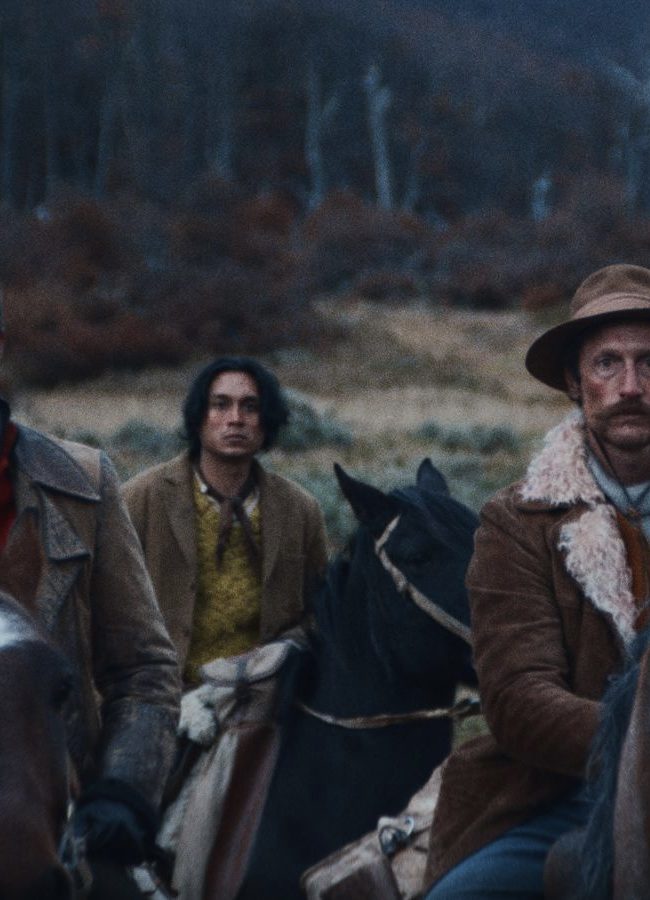Nick Toti’s “Digital Gods”- Season Two, Transmission One
 Welcome back, faithful Digital Gods readers! For those of you new to the column, I started writing it in 2016 after I’d noticed a gap in the film criticism I was reading on almost every indie film website. Everyone seemed to be covering the same releases, getting excited about the same up-and-coming directors, focusing on the same festivals. What I wanted to see was film writing that had a sense of real discovery. I was hungry for what was new and unlike anything I’d ever seen. I wanted to be shown cinematic worlds that couldn’t have existed 20 or even 10 years ago. But that writing didn’t exist, so my choices were either to A) mope about it, B) flail helplessly in an ocean of super hero nonsense and Star Wars gossip, or C) create it myself.
Welcome back, faithful Digital Gods readers! For those of you new to the column, I started writing it in 2016 after I’d noticed a gap in the film criticism I was reading on almost every indie film website. Everyone seemed to be covering the same releases, getting excited about the same up-and-coming directors, focusing on the same festivals. What I wanted to see was film writing that had a sense of real discovery. I was hungry for what was new and unlike anything I’d ever seen. I wanted to be shown cinematic worlds that couldn’t have existed 20 or even 10 years ago. But that writing didn’t exist, so my choices were either to A) mope about it, B) flail helplessly in an ocean of super hero nonsense and Star Wars gossip, or C) create it myself.
Hammer to Nail has been great and very supportive of this idea, but it can still be exhausting. There’s very little impetus for even the hippest readers to click on an indie film article that doesn’t have “A24” in the title. The hype machine hasn’t been built yet to promote the work of unknown, avant garde video weirdos. But that’s fine. We’ll build that machine here–one piece, one movie, one article at a time. If you keep clicking, I’ll keep writing. This can be our secret little social contract that unites us against the tidal wave of distraction that wants to carry our attention elsewhere.
I’ve started thinking of this column in television terms. I’ve done one season already and this is the beginning of Season Two. This first entry is where I get to share what I’ve been thinking about for the past few months. My hope is that it’ll set the tone for the 9 or 10 articles that will follow and maybe provide some sort of theoretical or philosophical framework for why I find the works and filmmakers I write about so damn interesting. If it fails in that, it succeeds in letting me blow off a little steam, so thank you for allowing me this little indulgence.
Lately my thoughts have been on this passage from Slaughterhouse-Five:
America is the wealthiest nation on Earth, but its people are mainly poor, and poor Americans are urged to hate themselves…Every other nation has folk traditions of men who were poor but extremely wise and virtuous, and therefore more estimable than anyone with power and gold. No such tales are told by the American poor. They mock themselves and glorify their betters.
While I can’t verify that America is the wealthiest nation on Earth (according to Business Insider, that honor belongs to Qatar), the rest of this statement strikes me as essentially true. It is especially true of cinema, where the alchemical mix of business genius, high society festishization, and technological innovation created the industry that was necessary before the artform could ever exist. Even when an American movie, such as The Grapes of Wrath, was made in the spirit of glorifying the nobility of the poor, it was made as a business venture for the primary aim of making rich men richer.
Money, and more specifically making money, has always been intimately tied to making movies. This is a huge part of why cinema is unique as an artform. Painting, literature, theater, music…all of these have roots in religious expression and communal experiences and were only later adapted to capitalist ends. Cinema was born from capitalism. The market drove the creation of the movie camera and the competition to make it increasingly better. Just as we can see that theater originated in Greek religious festivals, future generations will be able to identify Capitalism as the true religion of America from the art that it spawned.
The problem with this, as implied in the Vonnegut quote, is that it leaves those of us who have no money and no interest in using cinema to make money with a severe inferiority complex. The joy of creating is insufficient if it doesn’t serve utilitarian, capitalist ends. People in the movie industry condescend to us as if we are naive children and we internalize their judgments as our own. The successes of others become our failures. We mock ourselves and glorify our betters, sharing articles about “How Steven Soderbergh is Going to Destroy Hollywood” or which “Sundance Movies to Look Out For.” Someone else’s definition of success has been the only metric by which we judge ourselves and the psychic damage this has caused is immeasurable.
I want this column to be a glorification of the cinematically poor in spirit. By turning our collective back on the culturally sanctioned “common sense” of movie making, we can create our own sub- and countercultures that follow their own rules. We can be the Holy Fools of cinema who reject success but demonstrate countless other virtues through our work. Above I mentioned the idea of building a “hype machine” for the avant garde, but maybe that terminology was wrong. We’re not building a machine; we’re building a temple…one piece, one movie, one article at a time.
If there are works, dear reader, that should be considered for the Digital Gods column, please share them. If you are a filmmaker/video artist/animator/whatever else whose idiosyncratic/radical/mystical/mind-fucking/ degenerate/unprogrammable/uncategorizable work, please introduce yourself. The call for new work is always open at:
– Nick Toti(@NickTotiis)











